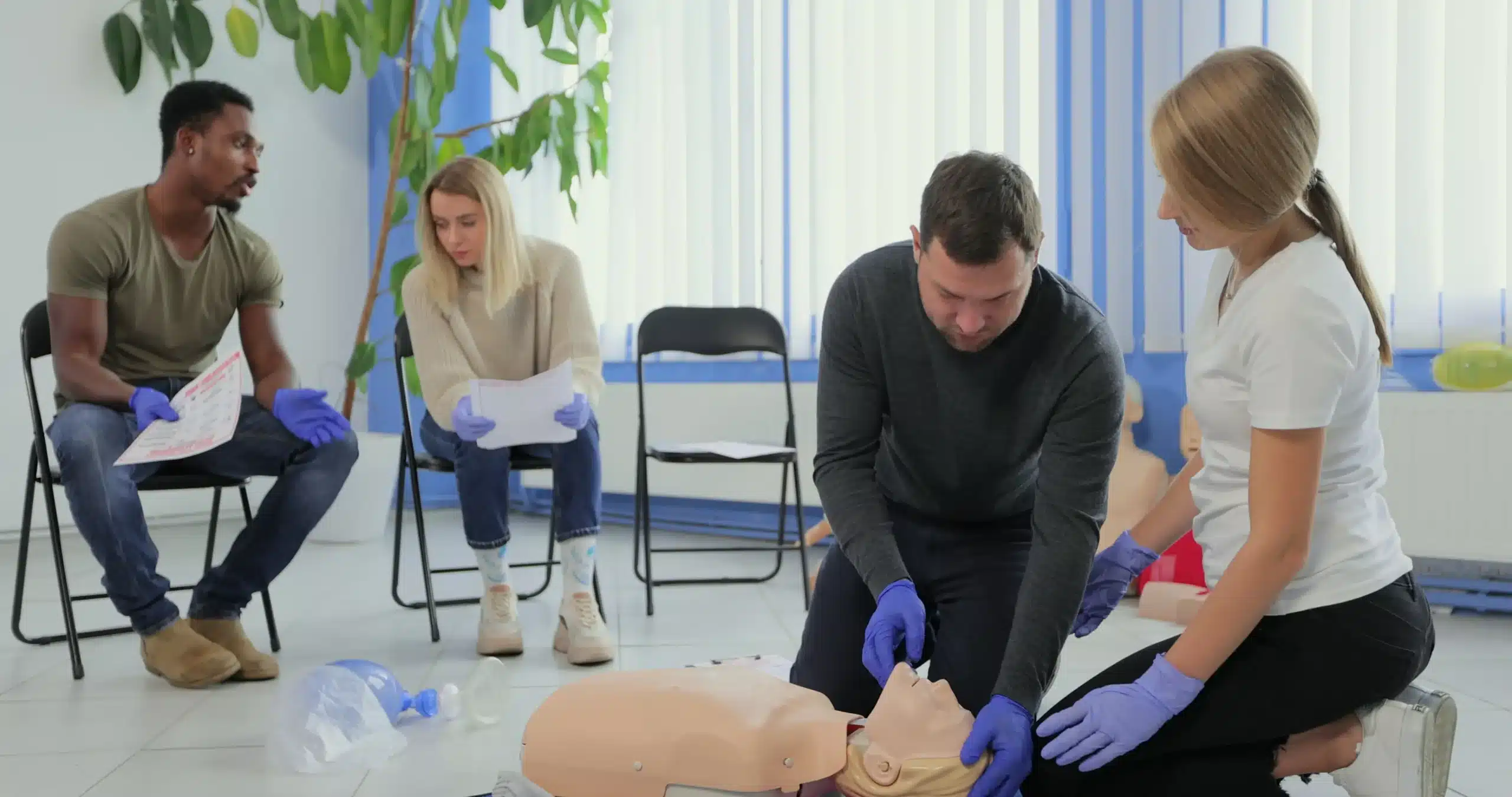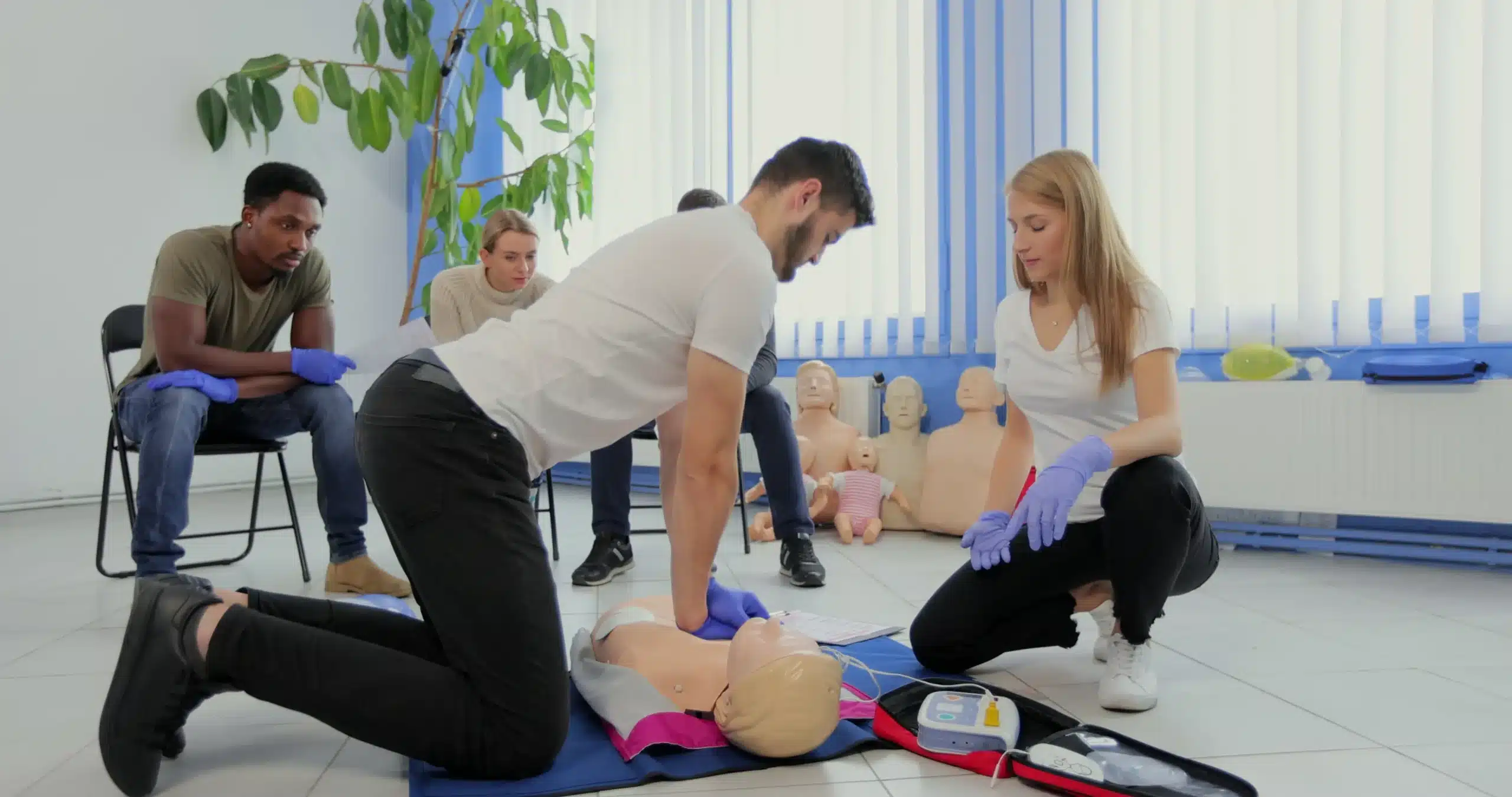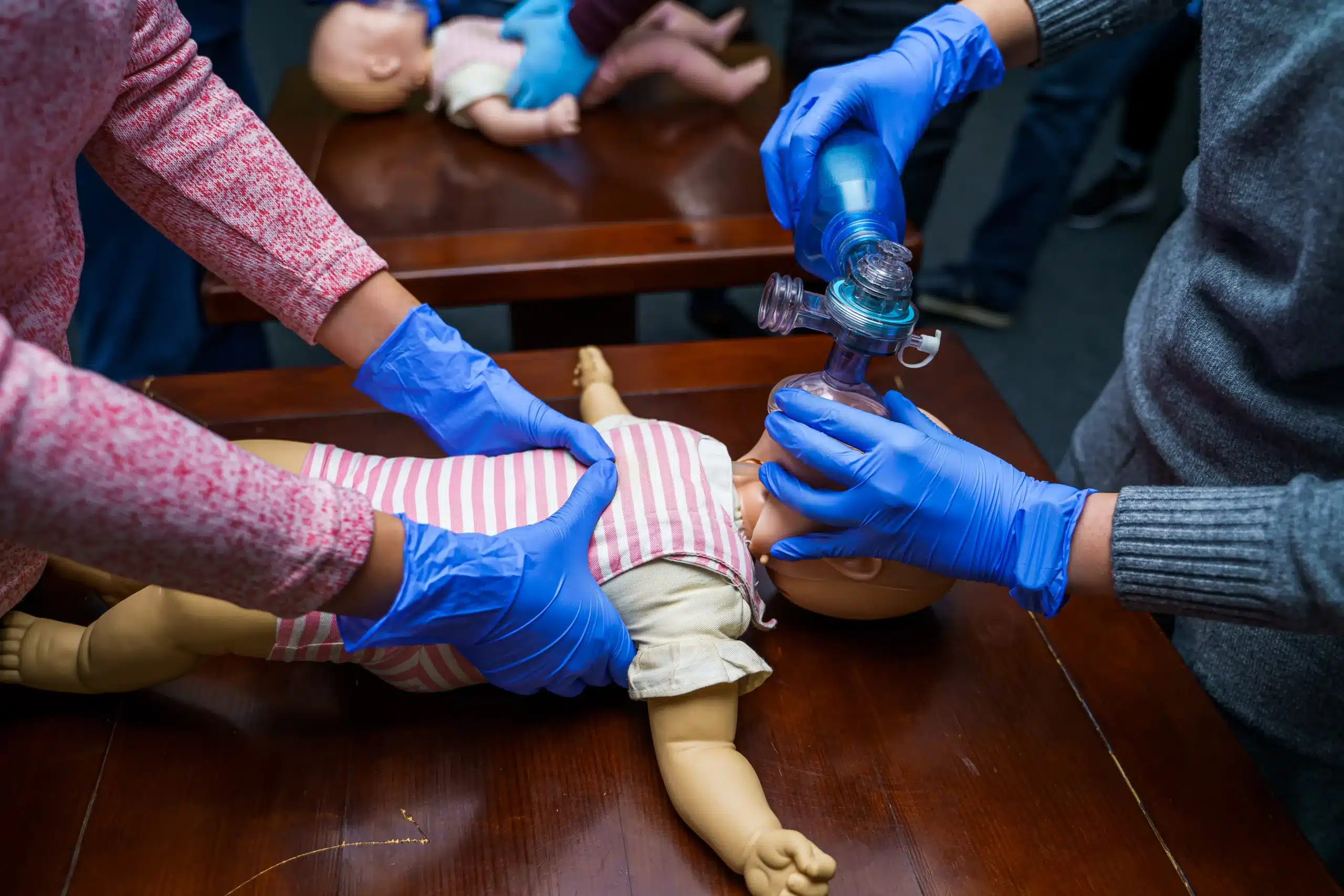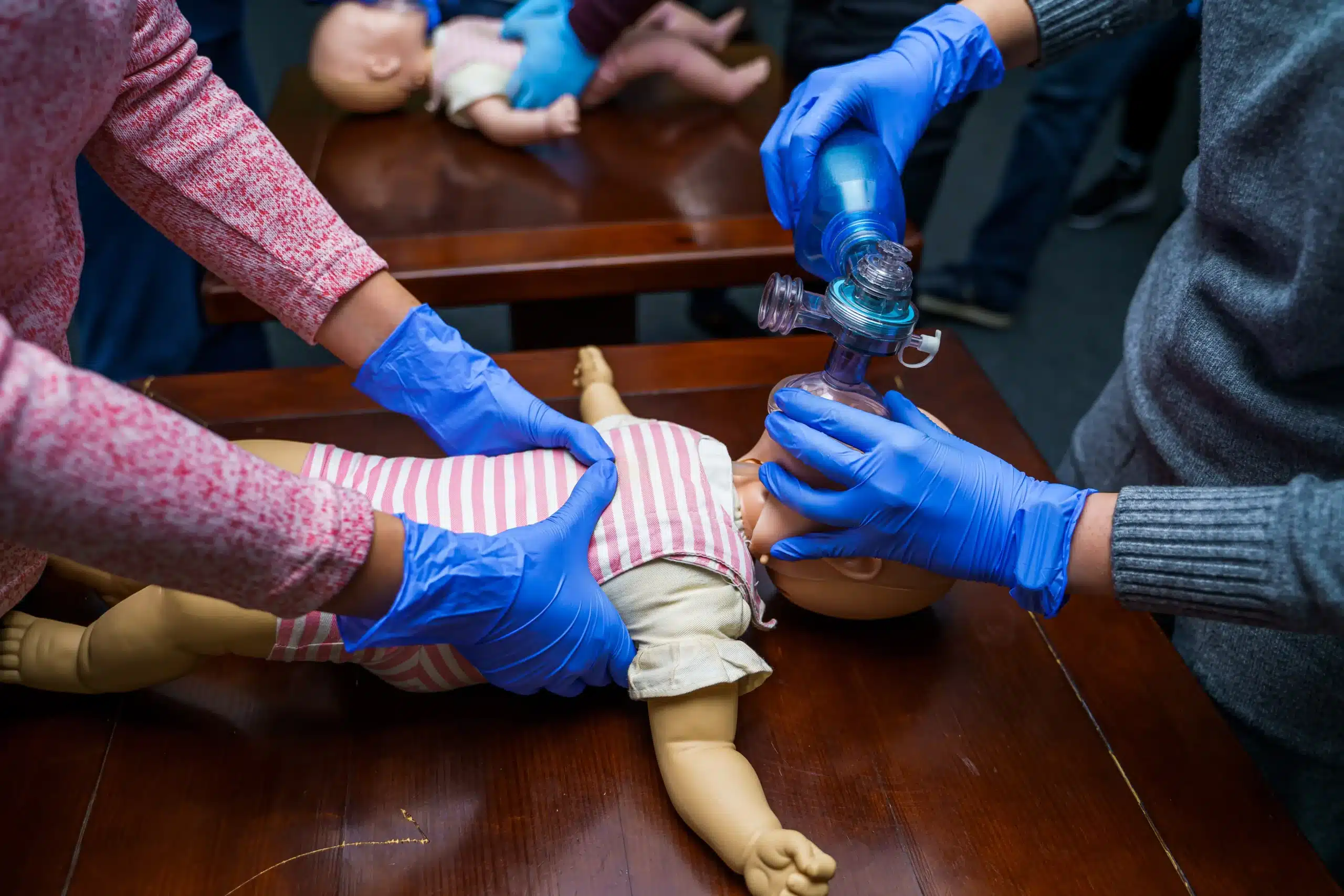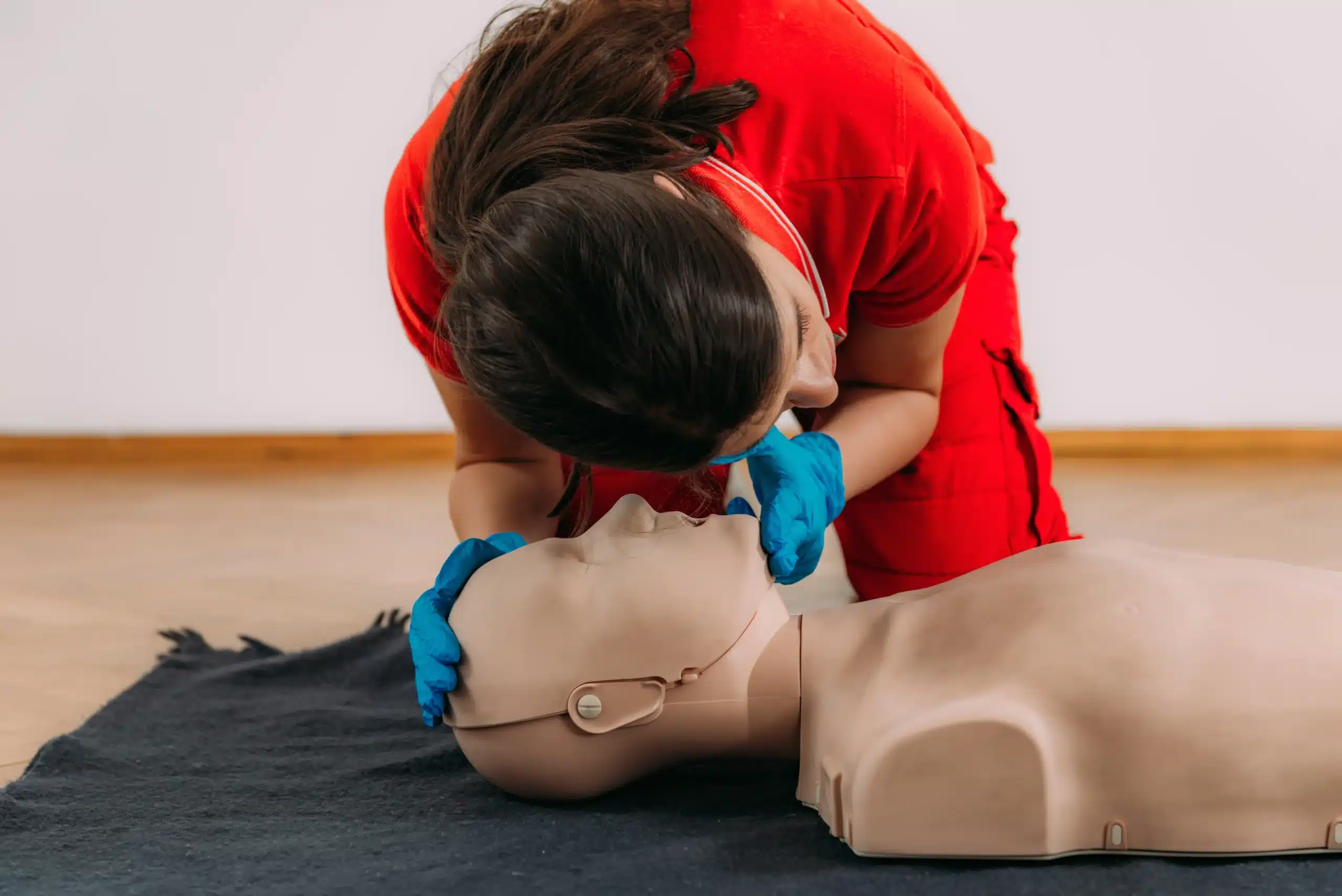Working in healthcare often means facing unexpected challenges, and when those challenges involve a child’s life, having the right training is paramount. Pediatric Advanced Life Support (PALS) certification equips healthcare professionals with the specialized knowledge and skills to confidently handle pediatric emergencies. This comprehensive training covers everything from recognizing early warning signs to providing advanced life-saving interventions. If you’re a healthcare provider dedicated to giving young patients the best possible care, finding reliable PALS certification courses near me is a crucial step in your professional development. This article will guide you through the essentials of PALS certification, from understanding its importance to finding the right training program for your needs.
Key Takeaways
- PALS certification equips you with essential skills: It provides healthcare providers with the knowledge and practical training to effectively manage pediatric emergencies, ultimately leading to better patient outcomes. Consider your learning style and schedule when choosing between in-person, online, or hybrid course formats.
- Select a reputable PALS provider: Look for accreditation, experienced instructors, and positive student reviews. Compare costs, locations, and available discounts to find the best fit. Preparing beforehand by reviewing the PALS Provider Manual and taking the pre-course self-assessment will set you up for success.
- Maintain your PALS certification long-term: Renew your certification every two years through a refresher course and stay up-to-date with the latest guidelines. Regularly practicing your skills is crucial for maintaining proficiency in pediatric advanced life support. PALS certification demonstrates your commitment to providing high-quality care and enhances your career prospects.
What is PALS Certification & Why is it Important?
Pediatric Advanced Life Support (PALS) certification gives healthcare providers the skills to handle pediatric emergencies. It focuses on the essential steps to assess and stabilize infants and children in life-threatening situations. This training is especially important for professionals regularly working with young patients, such as those in emergency rooms, intensive care units, and pediatric care settings. PALS certification emphasizes a systematic approach to quickly identify and address the specific needs of children facing medical crises. Premier Health offers a helpful overview of what a PALS class entails.
Key PALS Skills
A PALS course covers a range of essential skills, from initial assessment to advanced life-saving techniques. Participants learn how to perform a rapid pediatric assessment, recognizing key signs of distress. Respiratory management, a cornerstone of PALS training, teaches providers how to manage breathing difficulties in children. The course also covers cardiac arrest management, equipping providers with the skills to respond to heart-related emergencies. ACLS provides further details on the specific skills covered in PALS training. PALS emphasizes integrating basic life support (BLS) CPR with advanced techniques for young patients, ensuring a comprehensive approach to pediatric care. Effective teamwork and communication are also highlighted, as coordinated efforts are crucial during emergencies.
Importance for Healthcare Professionals
For healthcare professionals dedicated to pediatric care, PALS certification is a commitment to providing high-quality care. Maintaining certification requires ongoing practice and regular recertification courses, ensuring providers stay current with the latest guidelines. Sunnyvale CPR Classes offers a helpful guide on PALS certification courses. This dedication to continuous learning leads to improved patient outcomes, as providers can confidently respond to emergencies. PALS certification is a vital investment in the skills needed to deliver exceptional care to infants and children in critical situations.
Find Top PALS Certification Providers Near You
Finding the right PALS certification provider is crucial for a positive and effective learning experience. Here are a few avenues to explore:
Merced CPR Classes
If you’re in the Merced, Turlock, or Atwater area, Merced CPR Classes offers a convenient and affordable option for PALS certification. They emphasize small class sizes and a commitment to student success. Reading reviews from past participants offers valuable insights into a course’s effectiveness and overall quality. Plus, their low price guarantee ensures you’re getting the best value.
American Heart Association
The American Heart Association (AHA) is a leading authority on CPR and emergency cardiovascular care. They offer a comprehensive list of training centers providing PALS certification courses. Many hospitals and healthcare systems partner with the AHA, ensuring their courses meet the highest standards.
Red Cross
The American Red Cross also offers PALS certification courses. They are a well-respected organization with a long history of providing health and safety training. Their courses equip healthcare professionals with the skills to respond effectively to pediatric emergencies.
Local Hospitals & Medical Centers
Many local hospitals and medical centers offer PALS certification courses on-site. This can be a convenient option, especially if you work at one of these facilities. Check with your employer or nearby hospitals to explore available courses. When choosing a provider, consider factors like cost, location, and reputation. Maintaining your PALS certification is an ongoing commitment, so factor in the recertification process when making your decision. Regularly practicing your skills ensures you stay up-to-date with the latest guidelines and maintain your proficiency in providing critical care.
Choose the Right PALS Course Format
Deciding on the right PALS course format depends on your learning style, schedule, and budget. Let’s break down the most common options: in-person, online, and hybrid learning. We’ll also cover the typical duration you can expect for a PALS course.
In-Person Courses
In-person PALS courses offer a structured learning environment with direct interaction with instructors and other healthcare providers. These courses prioritize hands-on training, allowing you to practice essential skills like vascular access and managing cardiac arrhythmias in a simulated setting. The immediate feedback you receive from instructors is invaluable for mastering these techniques and building confidence. Valley Children’s emphasizes this hands-on aspect as crucial for real-world emergency situations. If you thrive in a traditional classroom setting and value face-to-face instruction, an in-person course might be the best fit.
Online Certification
Online PALS certification provides a flexible and often more affordable option. You can learn at your own pace and revisit materials as needed, making it ideal for those with busy schedules. If cost is a concern, online courses can be a budget-friendly alternative. Medtigo points out that online certifications developed by medical professionals and aligned with AHA and ILCOR guidelines are widely accepted by employers. Just be sure to choose a reputable provider to ensure the quality and validity of your certification.
Hybrid Learning
Hybrid learning combines the convenience of online learning with the practical application of in-person skills sessions. This format allows you to complete the coursework online at your own pace, then attend a hands-on session to practice and refine your skills. The American Red Cross highlights the flexibility of this approach, allowing students to learn on their preferred devices while still receiving the necessary hands-on training. A hybrid course can be a great option if you need flexibility but also value the benefits of in-person instruction.
Typical Course Duration
Whether you choose in-person, online, or hybrid learning, expect a PALS certification course to take around eight hours to complete. This timeframe ensures you receive comprehensive training in all the essential areas. ACLS and Valley Children’s both confirm this typical duration. For recertification, a shorter refresher course, usually one day, is typically offered two years after your initial provider course.
Understand PALS Certification Costs & Discounts
Knowing the typical costs associated with PALS certification and available discounts will help you budget effectively. Let’s break down the expenses involved.
Average Price Range
The average cost for PALS certification hovers around $159. This can change depending on the training provider, location, and whether you choose an online or in-person course. For example, ACLS.com lists their PALS certification course at $159. Keep in mind that this is a general benchmark, and prices can differ. Merced CPR Classes offers a low price guarantee, ensuring competitive pricing for your PALS certification.
Factors Affecting Cost
Several factors influence PALS course costs. A provider’s reputation, the location of the training (larger cities sometimes have higher prices), and the course format (online versus in-person) all play a role. Online providers often have lower overhead, which can translate to more competitive pricing for students. It’s wise to compare a few options before committing to a course. Consider factors like cost, location, and provider reputation when making your decision.
Group Discounts & Promotions
If you’re certifying a team or group of employees, inquire about group discounts. Many providers offer reduced rates for multiple certifications, making training more affordable. Contact Merced CPR Classes to discuss group discounts and create a cost-effective training plan.
Financial Aid
While financial aid specifically for PALS certification isn’t always advertised, it’s worth checking with course providers directly. Some may offer scholarships, payment plans, or other financial assistance. Don’t hesitate to ask—it’s always smart to explore all available options. Reading reviews from past participants can also give you a sense of a course’s value and help you decide if the investment aligns with your learning goals. Preparing for your course in advance can also help maximize the value you receive. Learn more about how to prepare for your PALS certification course.
PALS Certification: Prerequisites & Preparation
Before you jump into a PALS course, it’s helpful to understand the prerequisites and how to prepare. Knowing what to expect and familiarizing yourself with the materials will set you up for success.
Required Certifications
A current Basic Life Support (BLS) certification is required before enrolling in a PALS course. This foundational knowledge is essential for all healthcare providers working in emergency care, ensuring everyone has a baseline understanding of life-saving techniques. You can find more information about BLS certification on the American Heart Association BLS page.
Recommended Experience
While not strictly required, a background in pediatric care is highly recommended for PALS certification. This experience will give you a deeper understanding of the course content and allow you to apply PALS protocols more effectively. If you’re looking to refresh your skills or learn more about pediatric advanced life support, check out our PALS course options. We offer group discounts, and you can learn more on our group discount page.
Essential Study Materials
Preparing for your PALS course is key. Reviewing the PALS Provider Manual and completing the pre-course self-assessment are excellent ways to familiarize yourself with the material. This preparation will help you absorb information during the course and feel confident applying the concepts. For tips on preparing, take a look at our course preparation guide. We also offer a low price guarantee, which you can find on our low price guarantee page.
What to Expect During PALS Training
PALS training equips healthcare providers with the skills to respond effectively in pediatric emergencies. Understanding the course structure and expectations will help you prepare and make the most of your training.
Course Curriculum Overview
PALS training focuses on a systematic approach to pediatric assessment, covering essential areas like respiratory management and cardiac arrest management. The curriculum is designed for first responders working in various critical care settings, including emergency medicine, intensive care, and critical care units. Expect to learn specialized algorithms and protocols tailored to the unique needs of infants and children. You’ll also develop a deeper understanding of the physiological differences between children and adults, crucial for effective treatment in emergencies. PALS courses often incorporate case studies and simulations to reinforce learning and build practical skills. This comprehensive training provides a strong foundation for managing pediatric emergencies.
Hands-On Practice
PALS training isn’t just about theory; it emphasizes practical application. A significant portion of the course involves hands-on skill sessions led by certified instructors. These sessions allow you to practice essential techniques, such as airway management, intravenous access, and medication administration, in a safe and controlled environment. The American Heart Association.pdf) often uses a blended learning approach, combining online modules with in-person skills sessions. This hands-on practice builds confidence and competence in performing life-saving procedures. You’ll learn by doing, developing the muscle memory and critical thinking skills needed to respond effectively under pressure.
Exams
PALS courses typically include written and practical exams to assess your understanding and skills. The written exam evaluates your knowledge of pediatric assessment, treatment protocols, and emergency procedures. The practical exam requires you to demonstrate your proficiency in key skills, such as CPR, intubation, and defibrillation. Meeting certain prerequisites before enrolling, like having current healthcare provider CPR certification, is often required. Understanding the requirements and preparing thoroughly will increase your chances of success. This preparation ensures you’re well-equipped to handle pediatric emergencies confidently and competently.
Maintain Your PALS Certification
Keeping your PALS certification current is essential for providing the best possible care. This section covers everything you need to know about maintaining your PALS credentials.
Certification Validity
Your PALS certification, like many healthcare certifications, is valid for two years. This means you’ll need to renew it regularly to stay up-to-date on the latest pediatric advanced life support guidelines and maintain your skills. Knowing your certification’s expiration date is key—mark it on your calendar so you can plan for renewal well in advance.
Renewal Process
The PALS renewal process typically involves a one-day refresher course. This PALS renewal course reviews essential concepts and updates you on any new guidelines from the American Heart Association. Check with your original certifying organization or local providers like Merced CPR Classes for renewal course options near you. They often offer a variety of schedules to fit your busy lifestyle.
Continuing Education
Maintaining your PALS certification isn’t just about renewing every two years; it’s an ongoing commitment. Regularly practicing your skills is crucial. Consider participating in mock codes or simulations at your workplace to keep your skills sharp. Staying informed about the latest guidelines and best practices in pediatric advanced life support is also essential. Resources like those available from Premier Health can help you stay informed about PALS and other essential certifications. By actively engaging in continuing education and practice, you ensure you’re always prepared to provide the highest quality care to young patients.
Career Benefits of PALS Certification
Holding a Pediatric Advanced Life Support (PALS) certification opens doors in your healthcare career. It shows specialized knowledge and a commitment to providing high-quality care, which translates to better patient outcomes, increased confidence in your skills, and a competitive edge in the job market. Let’s break down these advantages.
Enhanced Patient Care
PALS certification equips you with the skills to assess, recognize, and deliver high-quality care to infants and children facing life-threatening emergencies. Think cardiac and respiratory events, shock, and post-resuscitation care. This specialized training is especially important for healthcare providers working in emergency medicine, intensive care, and critical care units, where quick action is crucial. The PALS course from the American Red Cross covers a range of critical skills, from recognizing early warning signs to performing advanced interventions. This directly leads to improved patient outcomes and a higher standard of care.
Confidence in Emergencies
Picture yourself facing a pediatric emergency. With PALS certification, you won’t just have the textbook knowledge; you’ll have the hands-on training and practical experience to manage the situation with confidence. This assurance comes from knowing you can effectively apply life-saving techniques and make informed decisions under pressure. PALS courses are designed to adapt to different skill levels. Experienced participants may even demonstrate their existing knowledge to bypass portions of the course. This personalized approach ensures you receive the most relevant training for your experience, further building your confidence.
Job Market Advantages
In a competitive healthcare field, PALS certification sets you apart. Many employers, especially those in critical care settings, prefer or require PALS certification for certain positions. It demonstrates your commitment to professional growth and your ability to handle complex pediatric emergencies. This can open up more job opportunities, support career advancement, and potentially increase your earning power. Staying current with your PALS certification is key. Regularly practicing your skills and completing recertification courses ensures you’re up-to-date with the latest guidelines and maintain your expertise in providing critical care to infants and children. This dedication to continuous learning benefits your patients and strengthens your professional reputation.
Choose the Right PALS Provider
Finding the right PALS provider is crucial for a valuable learning experience. It’s not just about getting certified—it’s about mastering the skills to confidently handle pediatric emergencies. Here’s what to consider:
Accreditation & Reputation
First, confirm the provider’s accreditation and standing. A reputable provider adheres to the latest American Heart Association (AHA) guidelines, ensuring your training aligns with industry best practices. Look for providers with established track records and positive reviews. Testimonials from previous students offer valuable insights into the quality of instruction and the overall learning environment. Think of it like choosing a restaurant—you’d probably check online reviews before making a reservation. Do the same for your PALS training. Consider factors like cost, location, and the provider’s reputation. Remember, maintaining your PALS certification is an ongoing commitment. Regularly practicing your skills and completing recertification courses ensures you stay current with the latest guidelines. Maintaining your certification is crucial for providing the best possible care.
Instructor Qualifications
The instructor’s expertise directly impacts your learning. Inquire about the instructors’ credentials, experience, and teaching style. Ideally, your instructor should have a strong medical background and extensive experience in pediatric advanced life support. A passionate and engaging instructor can make all the difference in your understanding and retention of the material. Check if the instructors are healthcare professionals actively involved in the field. This real-world experience translates to practical, relevant training.
Success Rates & Reviews
A provider’s success rates and student reviews speak volumes about the effectiveness of their training programs. Don’t hesitate to ask about student outcomes and look for reviews online. High success rates and positive feedback indicate a program that prepares students well for both the certification exam and real-life scenarios. Reading reviews from past participants offers insights into a course’s effectiveness. While some might question the validity of online PALS certifications compared to in-person training, a course developed by medical professionals and aligned with AHA and ILCOR guidelines should be acceptable to most employers. Online PALS certification offers numerous benefits, including convenience and flexibility.
Tips for PALS Certification Success
Earning your Pediatric Advanced Life Support (PALS) certification is a significant achievement. These tips can help you succeed, from choosing the right course to confidently passing the exam.
Prepare for Your Course
Before you even begin a PALS course, lay the groundwork for success. First, ensure you meet all the PALS certification requirements, which typically include a current Basic Life Support (BLS) certification. This foundational knowledge is crucial for the more advanced PALS content. Consider your learning style and schedule as you explore course options. If you’re balancing work and family commitments, an online or hybrid course might offer the flexibility you need.
Study Effectively
Once enrolled, discover the study methods that work best for you. Some people thrive with online resources, while others prefer hands-on practice. Many online PALS courses come with additional materials like practice exams and simulations—take advantage of these tools. Reading reviews from past participants can also offer valuable insights and help you focus your study efforts. Remember, effective studying isn’t about the quantity of time you spend but the quality of your engagement with the material.
Prepare for the Exam
The PALS exam assesses your knowledge and skills in pediatric emergency care. To prepare, review the PALS Provider Manual thoroughly and take any available pre-course assessments. These assessments can pinpoint areas where you need to focus. Practicing scenarios with colleagues or classmates can build your confidence and refine your skills. Finally, ensure you’re well-rested and have a clear mind on exam day. With dedicated preparation, you’ll be well-equipped to demonstrate your expertise and earn your PALS certification.
Related Articles
- Pediatric Advanced Life Support (PALS) in Turlock – Merced CPR Classes
- PALS Certification in Merced: Your Complete Guide – Merced CPR Classes
- PALS HeartCode in Turlock: Your Certification Guide – Merced CPR Classes
- Online PALS Classes in Turlock: Your Guide – Merced CPR Classes
- AHA PALS Classes in Merced, CA – Merced CPR Classes
Frequently Asked Questions
Why is PALS certification important?
PALS certification equips healthcare providers with specialized knowledge and skills to effectively manage pediatric emergencies. It emphasizes a systematic approach to assessment, resuscitation, and stabilization of infants and children, ultimately leading to improved patient outcomes. It’s a vital credential for those working in critical care settings like emergency rooms, intensive care units, and pediatric care areas.
What are the different PALS course formats available?
PALS courses are typically offered in three formats: in-person, online, and hybrid. In-person classes provide a traditional classroom setting with direct interaction with instructors. Online courses offer flexibility and self-paced learning. Hybrid courses combine online learning with in-person skills sessions, offering a balance of convenience and hands-on practice. The best format depends on your learning style and schedule.
How much does PALS certification cost, and are there any discounts?
PALS certification costs vary depending on the provider, location, and course format. Expect to pay around $159, though prices can differ. Many providers offer group discounts for multiple certifications, making it more affordable for teams or organizations. It’s always wise to inquire about potential discounts or financial assistance options when choosing a provider.
What are the prerequisites for taking a PALS course?
A current Basic Life Support (BLS) certification is a prerequisite for PALS certification. This ensures you have the foundational knowledge of CPR and basic life support techniques necessary for advanced pediatric care. While not always mandatory, prior experience in pediatric care is highly recommended to maximize your understanding and application of PALS protocols.
How can I maintain my PALS certification once I’ve earned it?
PALS certification is typically valid for two years. To maintain your certification, you’ll need to complete a PALS renewal course, usually a one-day refresher, before your current certification expires. Regularly practicing your skills and staying informed about the latest guidelines are also essential for providing the best possible care. Consider participating in mock codes or simulations and seeking out continuing education opportunities in pediatric advanced life support.
